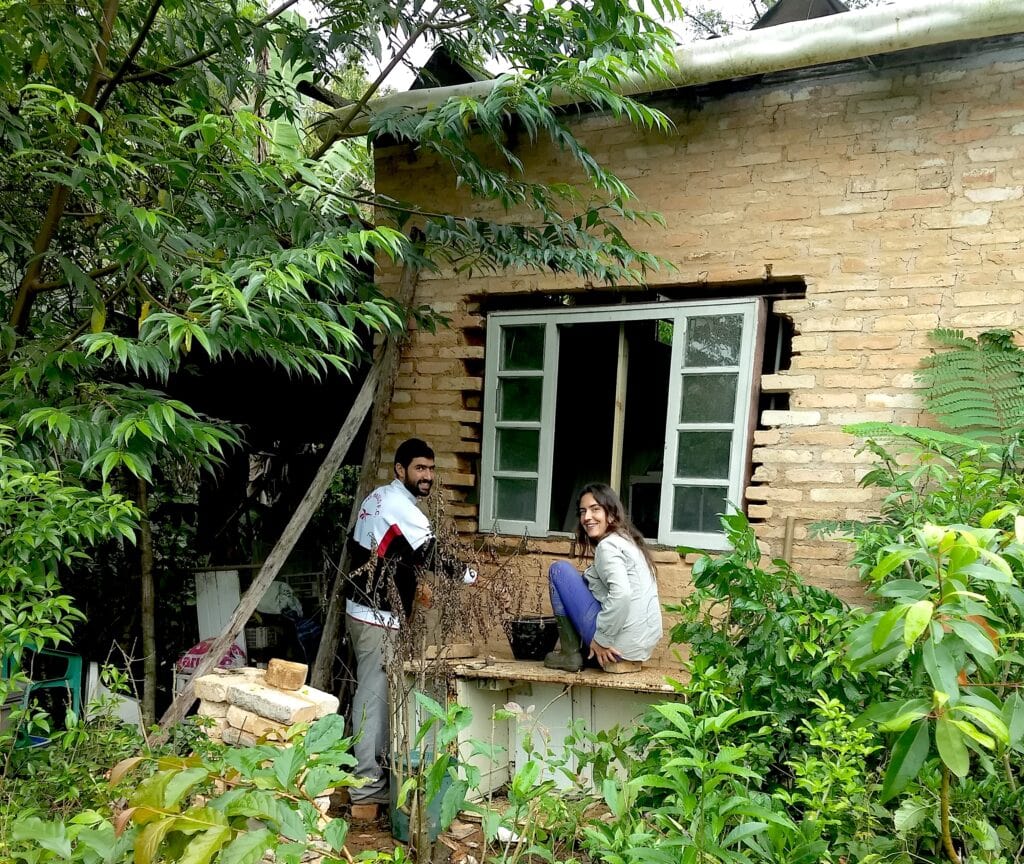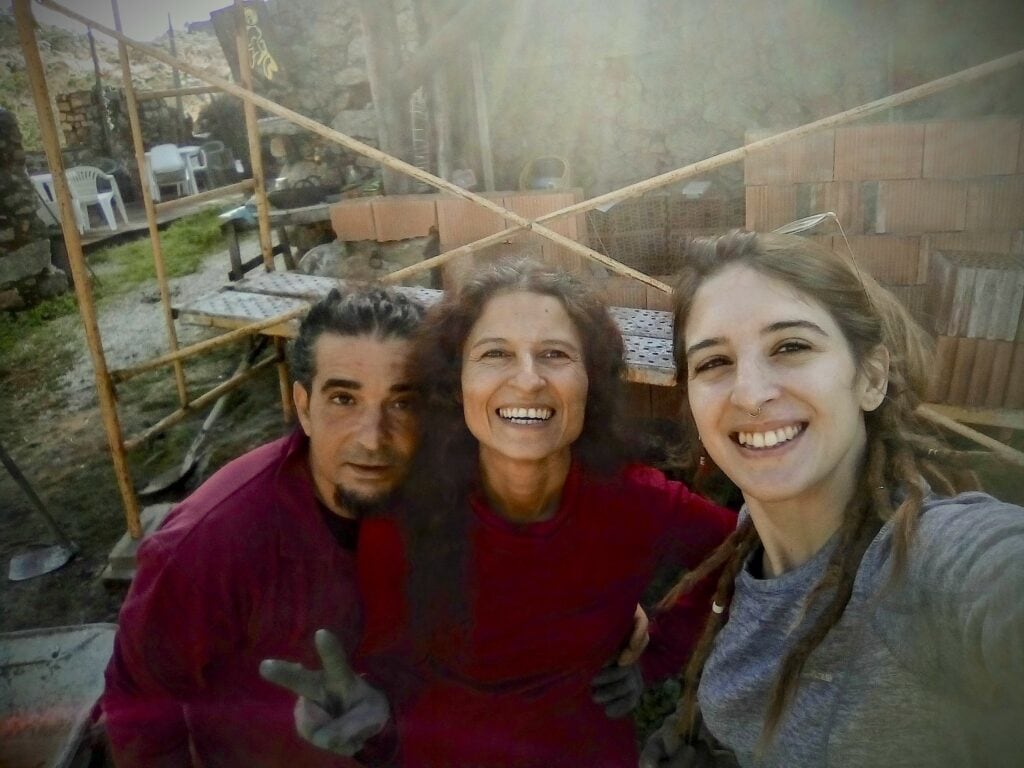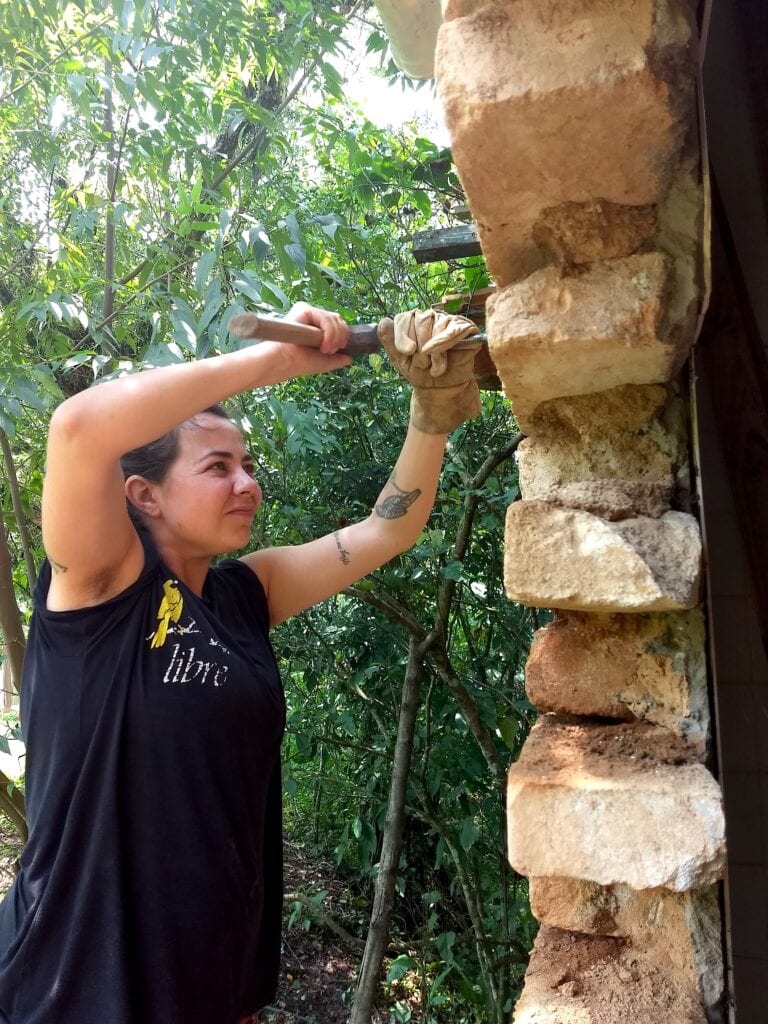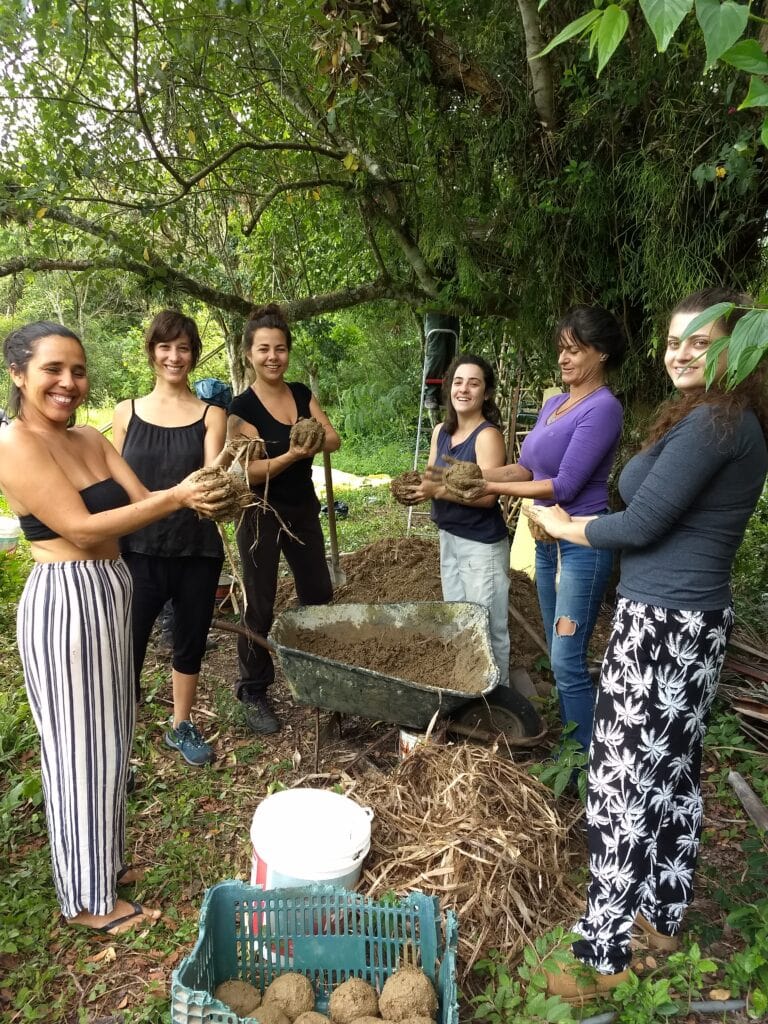Ecovila Nomade / Instituto Çarakura (Brazil) & Ecovila La Rosina (Spain)
With macro goals of enhancing natural buildings on the two properties, it was the underlying goals of ensuring comfortable and welcoming spaces for volunteers and guests that really motivated these two teams from Brazil and Spain. Beyond the physical manifestations, as we’ve witnessed with every other twin project, the collaborative partnership was a highlight, as the twinned participants delighted in the opportunity to connect, exchange knowledge and experience, and feel a sense of solidarity and support across the globe. While working on the ground, they paused to appreciate the moment of sharing a beautiful and natural environment with like-minded people. And working online, they celebrated the ability to witness alternate seasons. With 10 years difference between the two projects, they also appreciated the experience of the established Çarakura and the fresh energy of starting a new project at La Rosina.


At Çarakura, the mission was to improve volunteers’ lodging conditions, and at La Rosina, to add a green roof for a shower of a tiny house. Through initial meetings and hearing each of the plans unfold, the twins were able to offer the balance of grounding the other, helping to set realistic and meaningful targets within the boundaries of finance and time, while also pushing the manifestations beyond what could have been achieved alone, by offering advice and new perspectives.
The projects began with careful observation: a walk around the site to identify available materials and potential challenges to navigate. Working in small teams, they both relied on volunteers, neighbours, and friends – some with knowledge and experience, others with an eagerness to learn and contribute. They both put in a lot of work, with head, hands, feet, and heart, pushing through the challenges and frustrations of elements beyond their control such as weather and terrain. It was tough to build in the rain, though it also reminded them to consider the impact of rain on the build (tip: they added an extra column to hold the roof’s weight when wet). They were encouraged to observe and adapt to the natural conditions (tip: they placed a window on the sunny side of the building to contribute to keeping it warm). All the while they had to continue the daily maintenance necessities such as managing the dry toilets, taking care of the gardens, harvesting seasonal fruits, preparing meals, and keeping the areas organized.


At Çarakura, they harvested bamboo, pine trunks, and mud to build the new dry toilet, – a very heavy part of the project which really tired out the crew working long days up in the hills carrying heavy wheelbarrow loads. Environmentally, this management of resources benefited not only the construction but also the overall management of the land, by removing invasive species. On the social side, the need to recruit more volunteers led to a highlight of creating a new temporary community. Then they prepared the materials, cutting the bamboo, burning the edges of the pine trunks to seal them through the carbonisation process.
At La Rosina, they gathered materials to make the roof layers: recycled old clothes, river sand, gravel, and humidity insulation material and plenty of plants to use as well as the watering system. They dismantled the rotten parts of the previous wood roof and installed the new timber pieces. They built a thermic brick wall and column for the main roof timber and installed the green roof wooden drawers to receive all the main layers. Reflecting back on the process, the team was pleased that their practice of Non-Violent Communication helped them a lot to keep the connection between the 2 family units and also celebrate the little wins.
Overall, both twin partners felt that a strong supportive bridge was built – beyond these physical projects, they know they can count on each other to share experiences and knowledge, and really hope one day to be possible to meet either in Spain or in Brazil.

Leave a Reply